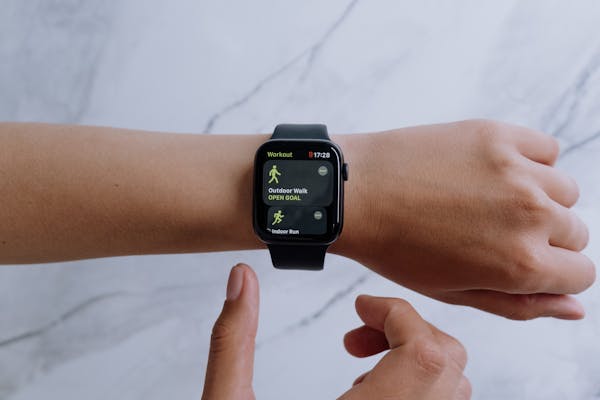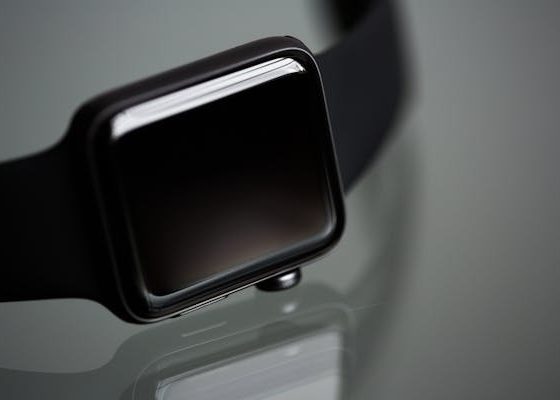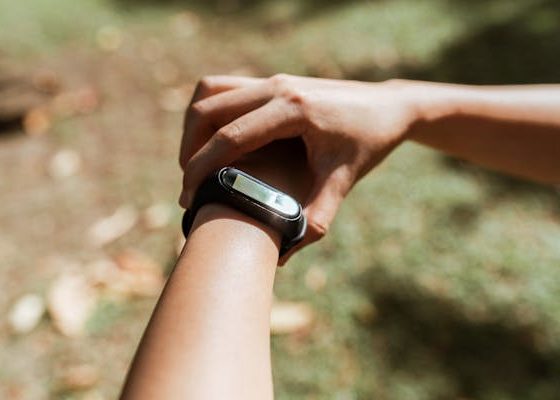Remote Patient Monitoring
It stands as one of the paramount benefits of wearable technology in healthcare, revolutionizing the landscape of patient care by transcending the traditional boundaries of medical supervision. With the integration of wearable devices into healthcare protocols, patients can now be monitored remotely, allowing healthcare professionals to continuously track vital signs, physiological parameters, and even lifestyle habits without the need for frequent in-person visits.
This innovation not only fosters convenience for patients, who can now undergo continuous monitoring from the comfort of their own homes, but also facilitates proactive healthcare interventions. Through the seamless transmission of real-time data, healthcare providers can promptly identify deviations from baseline health metrics, enabling early intervention and prevention of potential complications. Moreover, remote patient monitoring promotes patient autonomy and empowerment, empowering individuals to actively participate in managing their health. By fostering a sense of connectivity and continuous support, wearable technology cultivates a collaborative healthcare approach, wherein patients and healthcare providers work synergistically towards achieving optimal health outcomes.
Additionally, the utilization of wearable devices for remote patient monitoring facilitates the aggregation of vast amounts of health data, which can be harnessed for insightful analytics and predictive modeling. This data-driven approach not only enhances clinical decision-making but also contributes to the advancement of personalized medicine, wherein treatment strategies are tailored to the individual needs of each patient. Thus, remote patient monitoring epitomizes the multifaceted benefits of wearable technology in healthcare, heralding a paradigm shift towards proactive, patient-centric, and data-driven healthcare delivery models.
Early Disease Detection
One of the significant benefits of wearable technology in healthcare is early disease detection, a capability that holds immense promise for revolutionizing preventive healthcare practices. Wearable devices equipped with sensors and advanced monitoring technologies empower individuals to track various physiological parameters continuously and non-invasively. By seamlessly integrating into daily routines, these wearables offer a proactive approach to health management, enabling users to detect subtle changes in their health metrics over time.
Through real-time data collection and analysis, wearable technology provides valuable insights into an individual’s health status, allowing for the identification of potential health concerns at their inception. This early detection capability is particularly valuable in preempting the onset or progression of chronic conditions such as cardiovascular diseases, diabetes, and respiratory disorders. By alerting users and healthcare providers to deviations from baseline health indicators, wearable devices facilitate prompt intervention and proactive management strategies, ultimately leading to better health outcomes.
Furthermore, the continuous monitoring facilitated by wearables enables the detection of patterns and trends in health data, enhancing predictive analytics and personalized health recommendations. As a result, the early disease detection feature of wearable technology in healthcare not only empowers individuals to take proactive control of their health but also holds the potential to significantly reduce healthcare costs associated with late-stage disease management and hospitalizations.
Personalized Healthcare
Improved Patient Engagement
Enhanced data collection and analysis
One of the important benefits of wearable technology in healthcare. These devices, ranging from smartwatches to specialized medical wearables, continuously gather a plethora of health-related data points in real time. This wealth of information encompasses vital signs like heart rate, and blood pressure, and even more sophisticated metrics such as sleep patterns, activity levels, and even biochemical markers in some advanced wearables. By seamlessly integrating into patients’ daily lives, these wearables offer an unprecedented level of insight into their health statuses, enabling both individuals and healthcare providers to make more informed decisions.
Challenges and Future Directions:
While the benefits of wearable technology in healthcare are undeniable, several challenges remain to be addressed to maximize its potential. These include concerns related to data privacy and security, interoperability of devices and platforms, and the need for robust evidence demonstrating the clinical efficacy and cost-effectiveness of wearable solutions.
Moreover, as technology continues to evolve, the future of wearable healthcare devices holds immense promise for further innovation and advancement. From the integration of artificial intelligence and machine learning algorithms for predictive analytics to the development of advanced sensors capable of detecting biomarkers for early disease diagnosis, the possibilities are endless.





